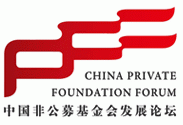5 Web Sites on Chinese Philanthropy in English
If you have searched around on the internet to find information on Chinese philanthropy, I’m making it easier for you.
As I am planning the GP Common web site, I thought it would be beneficial to have a clear idea on what is out there on Chinese philanthropy to readers in English, so that we can add value to you by providing complementary, rather than redundant, content. The resources are not abundant yet, but there are 5 good ones which dedicated a good part of their efforts to curating information on Chinese philanthropy. The five web sites are:
- Asian Philanthropy Advisory Network: It was formerly Asia Pacific Philanthropy Consortium, and currently part of Give2Asia.
- Asian Philanthropy Forum: A blog run by Ms. Dien S. Yuen, Chief Philanthropy Officer at Give2Asia.
- China Development Brief ( English ): A translation project under the Beijing Civil Society Development Research Center.
- China Philanthropy: A blog run by Social Venture Group, a Shanghai-based organization promoting impact philanthropy in China.
- Nonprofits in China: A blog run by Nonprofits in China Domain at Harvard Hauser Center.
I researched the 5 web sites from two angles, one on content, the other on method.
The charts above are self-explanatory. I’ll just give a few words on the terms. If you don’t care about the method stuff, please feel free to skip to the next part.
Content Focus: You may have already known, philanthropy and nonprofits are not distinguished in China. To make it more intuitive to readers from the west, I have assigned articles from each web site into 3 categories:
- Chinese philanthropy specific: content directly related to foundations, individual philanthropists etc. Yes, the same sense of philanthropy as viewed in the west.
- Chinese philanthropy related: content on a broader context where Chinese philanthropy works, such as laws, which are applied often to both philanthropy and nonprofits.
- Not related to Chinese philanthropy: content related to philanthropy in other Asian countries, or other fields/sections in Chinese civil society.
Curation models
- Aggregated: Gather news, articles, reports from other sources. This method is widely adopted by all 5 web sites.
- Distilled: Make the original content shorter and clearer by writing an introduction or a summary. The benefit is to help readers grab main ideas without going through the whole article. This seems to be the single most adopted method among all 5 web sites.
- Elevated: Elevate reader’s understanding toward a topic by providing thoughts, insights, experiences related to that article. You may notice Asian Philanthropy Forum and China Philanthropy adopt this method.
- Mashup: Mix different sources or formats of information to form a new look on a topic. Interestingly, only China Philanthropy has provided a taste of it.
- Translated: Translate articles from Chinese to English. Although all CDB content and a large percentage of content from China Philanthropy and Nonprofits in China are translated, in my categorizing efforts, this method only applies to the translated articles which have retained all the information from the original source, thus excludes a piece summarizing a Chinese article in English.
- Created: Produce their own content
The charts above may give you a general idea on these web sites. Meanwhile, it’s important to know my statistics come from the RSS feeds from their web sites, which may not cover the information on their site that is not syndicated into RSS feeds. I’ll point out some unique features each web site is offering.
Asian Philanthropy Advisory Network
* They focus on philanthropy, but cover a variety of Asian countries. On the Chinese philanthropy part, most of their content is aggregated or distilled from other sources like China Development Briefing. But they do provide two unique values to readers, which I believe is largely related to their expertise background and extensive networking: They provide a big picture on philanthropy in Asia and enable readers to get a good contextual sense on Asian philanthropy; they also link readers to a pool of good resources, whether country guides or well-presented reports. Do check out their “Research & Presentations” “Exploring Countries” and “Resources” sections.
Asian Philanthropy Forum
* Having first-hand working experiences at Give2Asia, Ms. Dien S. Yuen really adds value by providing insights and sharing experiences. Practitioners may find her blogs highly relevant. Besides writing blogs, she provided good resources on several branches in the philanthropic field: corporate philanthropy, diaspora Philanthropy, social enterprise etc.., with references on research, reports and organizations. I also like the sense of connection Ms.Yuen has demonstrated through her blogs.
China Development Brief (English )
This site is by far the most comprehensive and reliable source of information in English on civil society in China, headed by Dr.Shawn Shief, who has both extensive knowledge and keen insights on Chinese social sector. Philanthropy is only part of their broad coverage of topics. You may find their in-depth reports, whether produced by their staff writer or translated from other sources, extremely valuable in gaining a good understanding of the significant issues in Chinese social sector. On the CDB site, they also provide resources such as NGO directory and references on NGO-related regulations. CDB has just updated its Bibliography section. Scholars may find CDB site very helpful.
China Philanthropy
The title of the blog site is a little bit confusing, as they cover NGO much more than philanthropy, especially grassroots NGOs. That put aside, they are the group of people who work on the ground in China, which makes their perspectives and insights very valuable. As seen from the chart above, they are the site that has adopted the most versatile approaches to curate their content, and they are doing a great job adding value to their readers by producing high-quality content themselves. I also love the youthful dynamics and a sense of connection you can’t miss when reading their blogs.
Nonprofits in China
This site seems to reflect well the academic spirit at Hauser Center and they seem to cover more big-pictured or sector wide issues. You can definitely get a sense from their tag clouds – the most covered topics are Charity, GONGO, Policy etc.. They do a good job aggregating articles in English from Chinese media, such as China Daily, XinHua News etc.. They periodically update abstract of recent academic studies/papers on Chinese civil society. I really like the interviews they’ve done with the leaders in the social sector and find articles tagged with “Statistics” very interesting.





